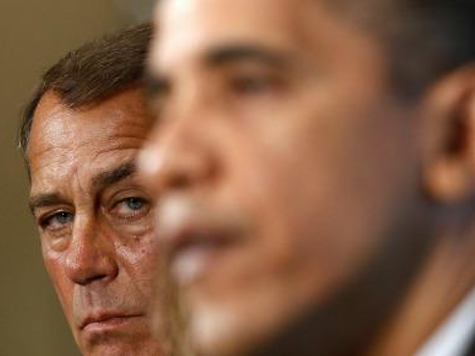The House Republican leadership will reportedly consider a short-term increase in the debt ceiling, after the White House hinted Monday that it might accept one. After insisting that he would not negotiate, the president blinked–and it is good for the GOP to seize the opportunity. It would be foolish to turn the idea down.
Yet there are also risks involved. With the debate over the government shutdown carrying over into the debt ceiling debate, House Republicans had an exit strategy from that former standoff. Once the debt ceiling debate is postponed, the shutdown debate will again stand alone–and Republicans will have to fight that battle again.
The public dislikes the shutdown–albeit less strongly than feared–and would like to see it resolved. The president, having offered (tactily) to negotiate on the debt ceiling, might believe he has created room to insist on a “clean” continuing resolution (CR)–i.e. on no negotiation regarding Obamacare and the shutdown.
The one new factor in Republicans’ favor is the utter failure of the Obamacare launch. Even USA Today, which supports Obamacare, slammed the rollout, saying that the difference between George W. Bush’s Medicare Part D launch in 2006 and the Obamacare launch is “the difference between competence and incompetence.”
And liberal comedian Jon Stewart–the authoritative source of news for much of the left–joined Republican outrage at the fact that individuals must buy insurance but small businesses received a one-year reprieve. There is a real constituency building for a one-year delay in the individual mandate–the new GOP position.
That may not be enough to sustain unified GOP opposition to a “clean” CR. A wise move by Speaker John Boehner would be to add the Obamacare delay to the short-term debt ceiling increase–just as he apparently plans to add equivalent spending cuts and the Full Faith and Credit Act. Then a clean CR could be passed.

COMMENTS
Please let us know if you're having issues with commenting.